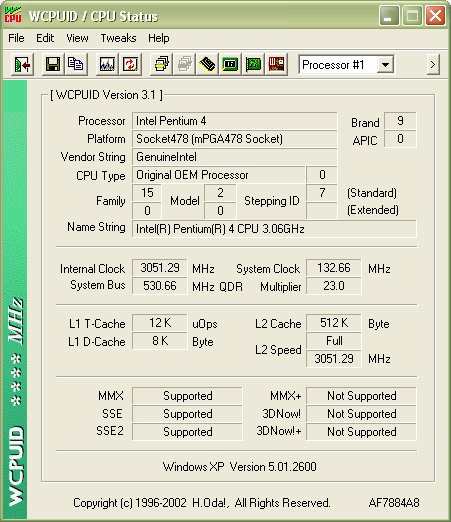|
It's not been that long since we saw the release of the 2.8GHz Pentium 4 and since then the focus has been on today, the date of release of the 3.06GHz. For a number of reasons, this new processor has held a lot of column inches in the online technology press.
To start with it's the first consumer x86 processor to break the 3GHz barrier. Back in August 2001 on the 27th, Intel released the 2GHz Pentium 4, a milestone in the computing industry and the first x86 processor to reach that magical figure. With the race to 1GHz taking so long and the race from 1GHz to 2GHz taking less than 12 months afterwards, Intel have taken just over 12 months since to officially add yet another 1000MHz (1 billion clock cycles per second) to things.
Secondly, and maybe most importantly, this is the first truly consumer processor to feature its HyperThreading technology, an implementation of superthreading taken to the next level. While Pentium 4 Xeon has enjoyed HyperThreading for a while, this 3GHz model is the first Socket 478 (and hence aimed at the regular consumer) processor to feature it. I'll talk a bit more about HyperThreading shortly.
In the race for fastest performing consumer x86 processor, the Pentium 4 competes with AMD's Athlon XP range of processors. While XP2700+ and XP2800+ (both 333MHz bus processors) have been announced and reviewed, you cannot buy one for love nor money so it's the XP2400+ and XP2600+ (266MHz bus) that are holding up the AMD side of the race at the moment.
In my XP2700+ review I found that 2.8GHz P4 plus PC1066 RDRAM was just enough to keep the new contender at bay and XP2800+ would be a fair fight in terms of overall performance. This means that 3.06GHz makes things certain with a little extra over what 2.8GHz P4 provides and that little bit more than AMD can muster at the moment (and an easy win over XP2400+/XP2600+).
So without looking at the benchmarks, you can be certain that this new processor is the overall performance leader as far as consumer x86 processors are concerned.
But it's a little bit more than just benchmarks this time around, HyperThreading makes sure of that.
 3.06GHz, yum yum
3.06GHz, yum yum
|